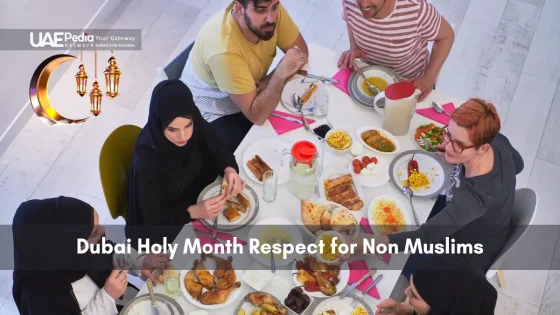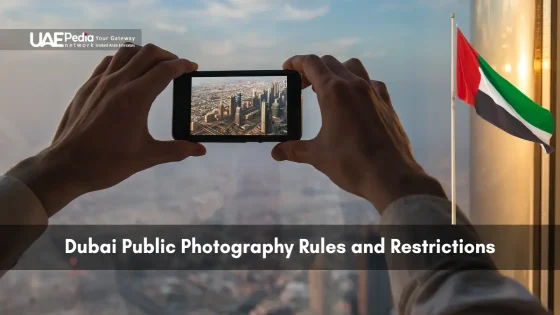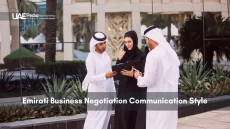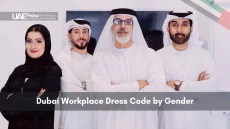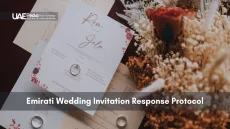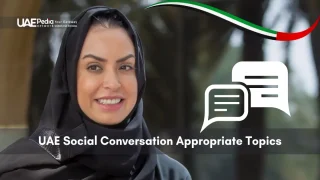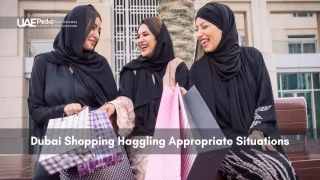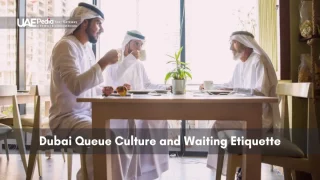Did you know over 75% of the UAE’s population observes fasting during the lunar cycle that transforms daily life? This seasonal shift creates a unique social rhythm—one that invites everyone to sync with its tempo. Whether you’re new to the region or a longtime resident, understanding these subtle changes fosters connection and cultural appreciation.
From adjusted business hours to the evening buzz of Ramadan in the UAE, the city’s heartbeat slows and quickens in unexpected ways. Etiquette expert Abdulla Al Jabri emphasizes that small gestures—like scheduling meetings after sunset or dressing modestly—carry deep significance. “It’s about shared spaces becoming bridges,” he notes, highlighting how awareness strengthens community bonds.
Practical adjustments make all the difference. Restaurants discreetly serve meals behind screened areas, while workplaces often shift schedules to honor the spiritual focus of fasting hours. Even simple phrases like Ramadan Kareem become threads in the social fabric, opening doors to meaningful exchanges.
During the lunar-month fast observed by over 75 % of the UAE population, Dubai’s operational framework shifts to accommodate predawn and sunset meals. Government and private sector hours are reduced by 2–3 hours, service providers enact screened-area meal services, and retail and leisure venues adjust opening times. Professional engagements should be scheduled outside fasting hours, meetings held after sunset, and logistical planning must account for altered public transport and staffing patterns.
Non-Muslim participants are advised to observe public-space protocols: consume food and drink only in designated areas, maintain reduced noise levels during daylight, and adhere to modest dress codes (sleeved tops, knee-length bottoms). When invited to an iftar, arrive 10–15 minutes after the adhan, follow host-led dining cues, and use common Arabic courtesies (e.g., “Ramadan Kareem,” “Shukran”). These practices ensure compliance with local regulations and foster respectful intercultural engagement.
- Discover how daily routines adapt to sunset gatherings and predawn meals
- Learn why timing matters for social and professional engagements
- Explore subtle ways to align with local customs while staying true to yourself
Understanding Ramadan and Its Cultural Significance
Imagine a time when cities slow their pace to honor ancient traditions under the stars. Ramadan’s roots stretch back over 1,400 years to the Quran’s revelation during Laylat al-Qadr—the Night of Power. This spiritual cornerstone shapes a global practice where fasting becomes a bridge between faith and self-awareness.
Origins and Spiritual Importance
The ninth lunar month centers on discipline and empathy. Muslims abstain from food and drink from dawn until dusk, mirroring the struggles of those in need. “Fasting isn’t just physical,” explains scholar Amina Al-Mansoori. “It’s about cleansing the soul and strengthening bonds.”
Core Practices and Community Impact
Daily rhythms shift to prioritize prayer and reflection. Families gather at sunset for iftar, breaking the fast with dates and water—a tradition echoing Prophet Muhammad’s example. Streets buzz with shared meals, while mosques host night prayers (taraweeh) that weave neighbors together.
| Practice | Significance | Community Role |
|---|---|---|
| Fasting (Sawm) | Builds empathy & self-control | Unites diverse groups through shared sacrifice |
| Iftar Meals | Celebrates gratitude & abundance | Strengthens family ties and invites cross-cultural exchange |
| Charity (Zakat) | Purifies wealth through giving | Supports vulnerable members, fostering collective care |
Even those not fasting can join the spirit—attending public iftar tents or learning greetings like Ramadan Mubarak. Discover how these traditions fit into broader religious holidays in the UAE, where cultural rhythms honor both past and present.
Non-Muslims are prohibited from eating, drinking or smoking in public during fasting hours; violations may lead to fines or jail Ref.: “Ramadan. (2023). Official Portal of the UAE Government.” [!]
Dubai’s Unique Ramadan Experience
Picture this: the city’s pulse softens by day, then erupts into kaleidoscopic energy after sunset. During this special season, routines adapt to honor ancient customs while keeping modern life humming. Let’s explore how daily patterns shift—and why these changes create unforgettable moments.
Sunrise to Sunset: Sync With the Clock
Workdays shrink by 2-3 hours, letting offices empty earlier. Malls often open post-noon, while gyms adjust hours for pre-dawn workouts. Restaurants discreetly serve daytime meals behind screens—except licensed venues. Pro tip: Check local etiquette tips before planning lunch meetings!
The UAE Labour Law mandates a two‐hour daily reduction for all private-sector employees during Ramadan and 3.5 hours for public-sector staff Mon–Thu Ref.: “Ramadan Working Hours in the UAE. (2025). Qureos.” [!]
When the Skyline Twinkles Awake
Sunset transforms the city into a feast for senses. Families reunite over iftar spreads of dates, lentil soup, and grilled meats. Hotels host lavish buffets, while food trucks spice up street corners. “Breaking fast together isn’t just about food,” says a local chef. “It’s where stories swap and laughter echoes.”
- Iconic spots like Al Fanar Restaurant revive heritage recipes
- Burj Khalifa’s fountains dance to evening prayer calls
- Night markets buzz till 2 AM, blending shisha smoke and oud perfume
Evening strolls reveal parks packed with picnics and bustling souks. The blend of timeless traditions and neon-lit energy creates magic you’ll want to savor. For deeper insights, our guide to cultural immersion unlocks more secrets!
Read More:
Navigating Dubai During the Holy Month: Expert Tips for Non-Muslims
Think of the city as a shared stage during this sacred season—every gesture becomes part of the collective rhythm. Whether you’re grabbing coffee or attending meetings, small choices ripple through spaces where tradition and modernity intersect. Here’s how to move gracefully through this unique time.
Mindful Choices in Shared Spaces
Daylight hours call for discretion. Enjoy snacks or drinks in designated dining areas rather than open public zones. Etiquette coach Ziying Zhou suggests: “Carry a reusable water bottle for quick sips in private—it’s practical and shows awareness.” Save lunch dates for licensed venues with screened-off sections.
Noise levels matter too. Lower voices in elevators or malls during fasting hours, and pause music during sunset prayers. These quiet moments aren’t restrictions—they’re invitations to sync with the city’s heartbeat.
During daylight fasting hours, public spaces discourage loud speech and music—these norms reflect increased community sensitivity. Ref.: “10 Things to Know About Ramadan in the UAE” (Chestertons MENA, 2024). Chestertons MENA.
Dress as Your Best Cultural Ambassador
Swap tank tops for sleeves and opt for knee-length skirts in public areas. Lightweight fabrics keep you cool while honoring local norms. “Your outfit speaks before you do,” Zhou notes. “Modesty here isn’t about rules—it’s about blending respect with personal style.”
Evening gatherings welcome brighter colors, but avoid sheer materials. Pro tip: Keep a scarf handy for mosque visits or spontaneous invitations to charity iftar tents.
- Greet colleagues with Ramadan Kareem—it’s like saying “Happy Holidays” with extra warmth
- Ask thoughtful questions about traditions—locals often love sharing stories
- Join community events to taste dates or help pack food boxes—it’s the ultimate icebreaker
Remember: Cultural harmony thrives when we notice, adapt, and engage. A smile and open mind turn every interaction into a bridge.
Dubai Holy Month Respect Non Muslims: Essential Etiquette and Best Practices
There’s a magic in breaking bread together that transcends language—and few moments capture this better than joining an iftar. These sunset feasts blend ancient customs with modern hospitality, offering visitors a front-row seat to cultural connection.
“Your presence is the gift,” says event planner Farah Al-Hamadi. “The spirit of generosity flows strongest when we share stories across the table.”
Joining Iftar and Participating in Local Customs
Timing matters: arrive 10-15 minutes after the adhan (call to prayer) to let hosts complete rituals. While dates or Arabic sweets make thoughtful gestures, your curiosity and smile matter most. Here’s your quick guide to blending in:
- Communal meals: Wait for others to start eating after the sunset signal. Try a bit of everything—it’s how bonds form.
- Drinking discreetly: Sip water between courses rather than during prayers. Alcohol isn’t served at traditional gatherings.
- Conversation rules: Skip diet talk or fasting questions. Ask instead about family recipes or childhood Ramadan memories.
Dress in flowy fabrics that balance modesty and comfort—think maxi dresses or linen shirts. If invited to a home, remove shoes at the entrance and offer heartfelt shukran (thank you) as you leave.
Remember: The true spirit lies in shared moments, not perfection. Whether you’re sampling harees porridge or laughing over cardamom coffee, you’re weaving into a tradition that spans generations.
Cultural Do’s and Don’ts in a Diverse City
Ever walked into a room and instantly felt the rhythm change? That’s public life here during this season—a dance between quiet reflection and vibrant connection. Navigating shared spaces becomes easier when you learn the steps.
Understanding Public Spaces and Social Gatherings
Daylight hours hum with subtle energy. Keep music low in cars or shops, and save phone chats for private corners. When attending suhoor gatherings (pre-dawn meals), arrive fashionably late—hosts often prep feasts till midnight.
In homes, remove shoes unless told otherwise. If offered Arabic coffee, hold the cup with your right hand—it’s one of those customs that whispers “I see you.” At community events, let elders take food first. These small acts build trust with residents and families.
Clothing choices matter. Swap beachwear for breezy maxi dresses or collared shirts in markets or mosques. Our guide to UAE holiday attire helps balance style with cultural awareness.
Nighttime brings lively energy. Street vendors sizzle with kebabs, while kids play till dawn. Join the fun, but avoid public displays of affection—save those for private spaces. When in doubt, mirror what locals do.
Patience unlocks richer experiences. If service slows during prayer times, use the pause to people-watch or sip karak chai. These moments teach more than any guidebook.
Remember: Every “hello” to a neighbor or thoughtful clothing choice weaves you deeper into the city’s story. Cultural harmony starts with noticing—and embracing—the details.
Experiencing Community, Charity, and Spiritual Growth in Dubai
What if sharing a meal could spark connections that linger long after the plates are cleared? This season weaves generosity into daily life, turning simple gestures into bridges between hearts. From packed food boxes to moonlit gatherings, the city becomes a classroom for collective care.
Small Acts, Big Ripples
Charity here isn’t just writing checks—it’s rolling sleeves. Volunteers stuff grocery bags for low-income workers or stock neighborhood fridges with leftovers. “Giving isn’t transactional,” says community organizer Mariam Al-Haddad. “It’s about seeing needs and showing up.”
| Initiative | How to Join | Impact |
|---|---|---|
| Community Fridges | Drop surplus meals at marked locations | Feeds 500+ daily across 12 districts |
| Charity Runs | Register for dawn 5Ks supporting education | Funds school kits for 2,000 children |
| Food Box Packing | Sign up via local mosques or apps | Distributes 1 million meals annually |
Ramadan charity initiatives like food‑box programs distribute approximately one million meals annually across the UAE. Ref.: “10 Things to Know About Ramadan in the UAE” (Chestertons MENA, 2024). Chestertons MENA.
Where Streets Become Living Rooms
As dusk falls, parks and squares morph into open-air feasts. Strangers share platters of machboos rice while kids trade stories under fairy lights. Timing matters: arrive 10 minutes post-sunset to let hosts pray, then dive into the spread.
“Breaking bread together erases ‘us vs. them’,” notes chef Khalid Al-Marzouqi. “You leave richer in friends than calories.”
Non-locals can participate mindfully:
- Offer to bring desserts from your culture—it’s a delicious icebreaker
- Ask before photographing faces at gatherings
- Learn basic phrases like JazakAllah khair (thank you)
These moments aren’t just cultural footnotes—they’re masterclasses in empathy. Whether you’re passing plates or packing aid boxes, every action stitches you deeper into the community tapestry.
Embracing Ramadan: Reflections on Cultural Immersion and Respect
There’s a quiet magic in how traditions can turn strangers into neighbors. This season weaves shared moments into lasting bonds—whether through Ramadan Mubarak greetings or the hum of laughter in many restaurants after sunset. The city becomes a classroom where spiritual growth thrives not just in prayer, but in exchanged smiles and collective generosity.
Participating in acts of charity—like packing food boxes or donating meals—adds depth to the experience. These gestures bridge differences, revealing how the significance of the holy month stretches beyond rituals. Community iftars and neighborhood drives remind us that giving isn’t about obligation; it’s about creating ripples of connection.
Curious newcomers thrive here. Savoring sunset feasts or learning local phrases like Ramadan Kareem opens doors to authentic exchanges. Many restaurants craft special menus, blending heritage recipes with modern twists—perfect for tasting traditions without words.
Ready to deepen your understanding? Explore our guide to meaningful acts of charity across the Emirates. Whether you’re planning your next visit or simply seeking inspiration, remember: cultural harmony begins with an open heart and a willingness to listen. The table is always set for one more.
While not illegal, it’s respectful to avoid eating, drinking, or smoking in public spaces from sunrise to sunset. Many malls and hotels offer discreet dining areas, and workplaces often provide private break rooms.
Opt for modest clothing—shoulders and knees covered—especially near mosques or traditional areas. Even in modern neighborhoods, avoid overly revealing outfits to align with the month’s reflective spirit.
A> Yes! Many eateries operate behind screens or with covered windows. Delivery services like Talabat and Deliveroo run normally, so you can enjoy meals privately while respecting those fasting.
Accept invitations graciously—remove shoes before entering homes, wait for the adhan (call to prayer) to break the fast, and try dates first. Phrases like “Ramadan Kareem” (Generous Ramadan) show cultural awareness.
Absolutely. Offices often close by 3 PM, and malls extend hours post-iftar. Check schedules for attractions like Burj Khalifa—some adjust timings for suhoor (pre-dawn meals) or Taraweeh prayers.
Evening energy shifts to cultural events! Think Ramadan tents with oud players, henna artists, and shared feasts. Alcohol service is restricted—licensed venues still serve but avoid loud music or parties.
Yes! Initiatives like “10 Million Meals” welcome all contributions. Look for labeled donation boxes in supermarkets or use apps like Dubai Cares to support ethically.
